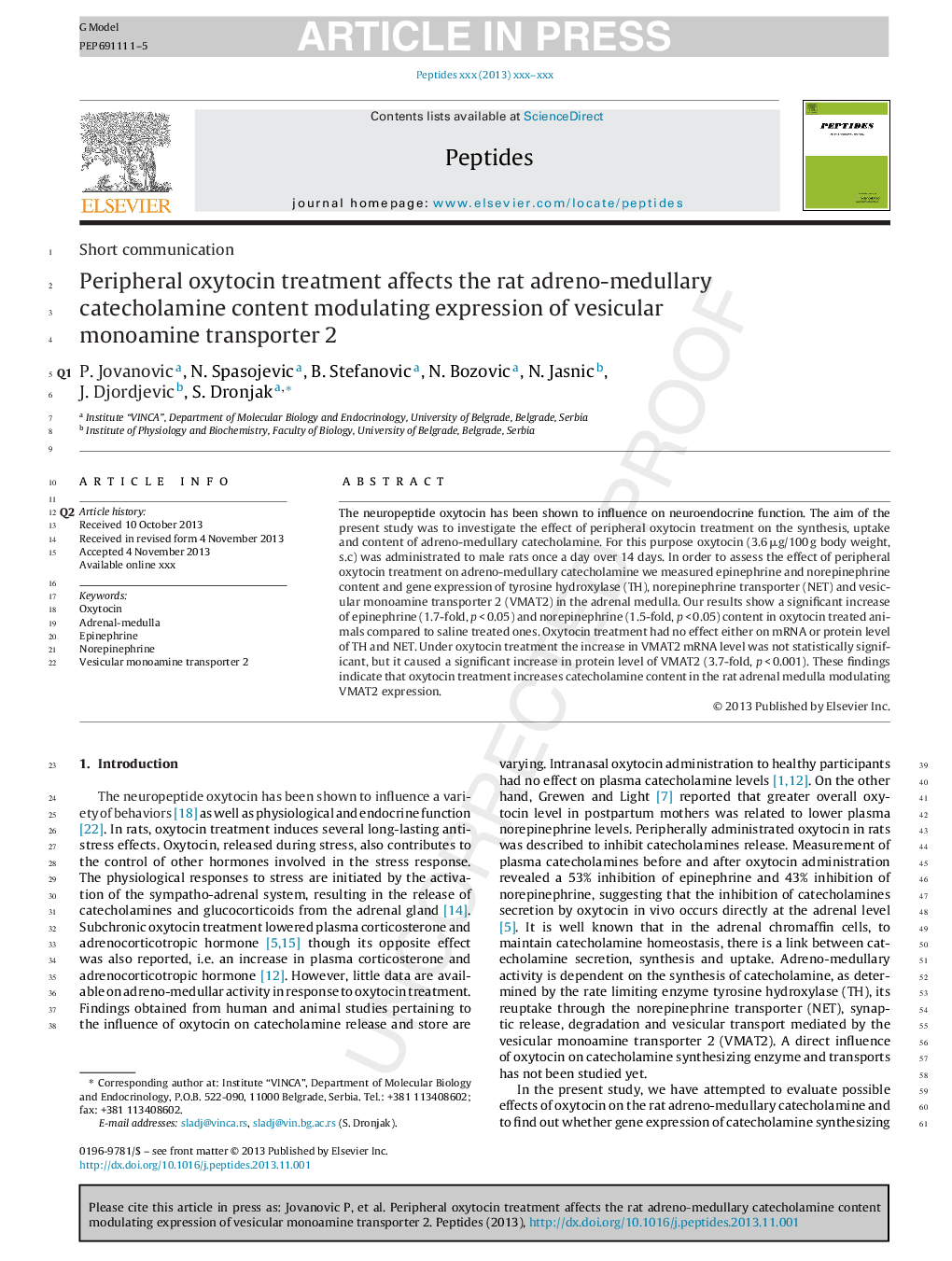| Article ID | Journal | Published Year | Pages | File Type |
|---|---|---|---|---|
| 8348525 | Peptides | 2014 | 5 Pages |
Abstract
The neuropeptide oxytocin has been shown to influence on neuroendocrine function. The aim of the present study was to investigate the effect of peripheral oxytocin treatment on the synthesis, uptake and content of adreno-medullary catecholamine. For this purpose oxytocin (3.6 μg/100 g body weight, s.c) was administrated to male rats once a day over 14 days. In order to assess the effect of peripheral oxytocin treatment on adreno-medullary catecholamine we measured epinephrine and norepinephrine content and gene expression of tyrosine hydroxylase (TH), norepinephrine transporter (NET) and vesicular monoamine transporter 2 (VMAT2) in the adrenal medulla. Our results show a significant increase of epinephrine (1.7-fold, p < 0.05) and norepinephrine (1.5-fold, p < 0.05) content in oxytocin treated animals compared to saline treated ones. Oxytocin treatment had no effect either on mRNA or protein level of TH and NET. Under oxytocin treatment the increase in VMAT2 mRNA level was not statistically significant, but it caused a significant increase in protein level of VMAT2 (3.7-fold, p < 0.001). These findings indicate that oxytocin treatment increases catecholamine content in the rat adrenal medulla modulating VMAT2 expression.
Related Topics
Life Sciences
Biochemistry, Genetics and Molecular Biology
Biochemistry
Authors
P. Jovanovic, N. Spasojevic, B. Stefanovic, N. Bozovic, N. Jasnic, J. Djordjevic, S. Dronjak,
